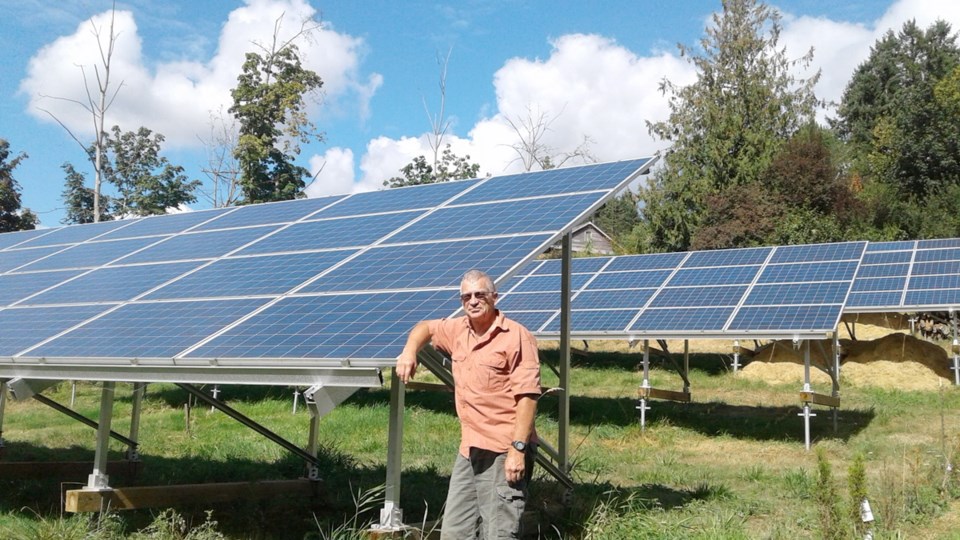My solar farm demonstrates the new economics of renewable versus fossil-fuel energy. Spend or invest in renewable energy — and make money. Spend on gas cars or appliances and/or heating systems that use fossil fuels — and lose money.
I sell clean renewable energy to B.C. Hydro for about 10 cents per kilowatt/hour from 192 solar panels in Maple Bay. In 2016, I made a taxable return on investment of three per cent. But the real financial return was likely four or five per cent, because I ripped out my oil furnace and use only electric heating. No more home heating oil needed — a big saving my accountant does not see.
And if B.C. Hydro ever pays off its massive debt, hydro rates will surely increase, while I make more profit. I sell electricity.
Mideast countries are building solar farms that will sell electricity at five cents per kWh — equal to $10 per barrel of oil.
No oil company can compete with solar at those prices.
My solar panels will work with little maintenance for more than 25 years, capturing free photons of energy from the sun. So my solar pension dividend of three to four per cent looks like a secure, long-term investment. But it’s not all about money.
As a retired environmental consultant, I understand the huge misery and destruction the climate-change storm is bringing us.
So as a motivated carbon-buster, I include social and environmental issues in my accounting.
My solar panels produce energy at less cost than will the Site C dam project, operate with infinitely less environmental damage than will the Kinder Morgan oilsands pipeline expansion project, and emit massively less greenhouse gases than burning any fossil fuel.
Most know that a do-nothing behaviour about climate change is a serious threat to our planet’s future. But perhaps you feel helpless. I understand.
Not everyone has my opportunity to invest their pension money in a solar farm. But you can consider renewable energy every time you buy something: an electric car or heat pump, a bicycle, more vegetables and less meat — anything or any activity that burns less fossil fuel.
For example, on journeys in my e-car, I drive right past gas stations. And when I return home, that great car sucks back some of my solar farm’s electricity from B.C. Hydro’s grid to power up for the next trip.
So I buy no gas, and save money. I sell electricity, and make money. How great is that?
If you have a small amount of money to invest, SolShare Energy is a community-owned renewable energy project in Vancouver that pays dividends. If you have more money, install solar panels on your roof at a cost of $10,000 to $15,000 — that money will be returned to you over the long term through lower hydro bills.
My solar farm’s triple bottom line: Financially, it makes money; environmentally, it reduces the impact of climate change; and socially, it contributes to a sustainable future for my kids.
Sure, it’s a long-term investment, but so is raising a family.
Peter Nix of Maple Bay calls himself the Cowichan Carbon Buster.



